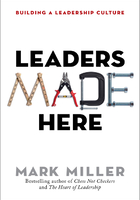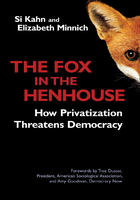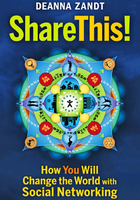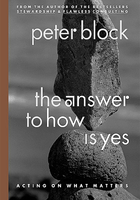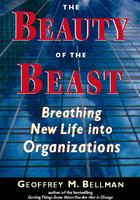PART I Understanding the Values Gap in Business
There is a values gap in business, and most businesses underperform because they cannot bridge that gap. The gap is not straightforward, and it is not as simple as live your values and be authentic.
First, all over the world there is a high degree of mistrust in business and its executives. Tell someone that you teach business ethics, and they have to manage not to laugh, or they say, "Oh, I didn't know business had any" or "Must be a short course." Public trust in business is at a low point around the world; and while a new story of business is emerging, it is dangerous for business as an institution to occupy the moral low ground in society.
Second, there can be a great deal of individual conflict around the idea of values. Values represent what is most important to us, and we often can be confused about these issues. In today's interconnected world, we encounter many difficult values issues that we have never before confronted. And sometimes we expect that values issues are simple and that if we just act on our values, our problems will be solved.
Finally, individual businesses have problems with making their values come alive in the organization so that executives and employees can act consistently in accordance with those values. And while many businesses have values statements, often they do not translate into living documents. Sometimes the business values conflict with one another, and sometimes they conflict with individual values of employees. Often the world changes, and companies encounter new situations that require rethinking how their values are relevant. The result of these forces is a values gap for many businesses.
Why Trust in Business Is at an All-Time Low
Enron was known for its innovative spirit and its commitment to a set of values called RICE, which stood for respect, integrity, communication, and excellence. Enron won Fortune magazine's America's Most Innovative Company award for six consecutive years, from 1995 to 2000. According to Fortune, "Famous for innovative thinking, Enron has led the charge for deregulation and consumer choice, and has created new businesses such as electricity trading, in which kilowatts are bought and sold like pork bellies."[1]
Yet even as Enron was reaping kudos on Fortune's Most Innovative Company list, there were allegations of massive fraud. In the businesses where the company was supposedly innovative, the numbers were misleading. There were also accusations of Enron's manipulating the electricity market in California. The board allowed the chief financial officer exceptions to the company's ethics policy so that debt could be moved into off-the-books special-purpose vehicles. The chairman and the chief executive officer (CEO) were convicted of criminal wrongdoing. Enron's accounting firm, Arthur Andersen, which shredded key documents, went out of business. Clearly, Enron had a values gap-and many have argued that Enron epitomizes what is wrong with business and capitalism.
Although Enron may be an outlier, there has been an unending cycle of business scandals, from the Teapot Dome scandal in the 1920s to the most recent financial sector meltdown. This cycle leads to a public perception of business as occupying the ethical low ground in society. Many people simply do not trust business as an institution that is able to better our lives. In fact, the surveys are pretty clear: public confidence in the institution of big business reached an all-time low in 2009, and in 2014 it remained at the bottom of the list, somewhere between organized labor and the US Congress.[2]
Think about recent history. Recall the headlines and news coverage of Enron, WorldCom, Parmalat, the United Nations Oil-for-Food Programme, Long-Term Capital Management, Bear Stearns, the tainted milk and meat scandals in China, the child labor of Nike, the Zimbabwe diamond scandal, and the raft of banks and former financial institutions that felt the pain of the global financial crisis.
One conclusion that some draw from stories of companies such as these is that business is not a trustworthy institution. After every scandal, critics cry for more integrity in business. After Enron both the New York Times and the Wall Street Journal urged President George W. Bush to support legislation to encourage auditors to be the primary guardians of business integrity to prevent fraud from occurring in the first place. These pundits have an underlying story about business that we call the "business sucks" story. They believe that business is an untrustworthy institution that drives the unrelenting pursuit of profits and self-interest and lacks any sense of values and ethics. They also believe that such greed and rapaciousness can be curbed only by greater forces such as government regulation.
What this point of view misses is the thousands of businesses that have never been tainted by scandal. For every Enron there are at least 10,000 companies employing ordinary human beings who are trying to do the right thing, creating value for those people the company can affect. It also does not account for the tremendous progress that companies have made in the past 35 years or so, paying attention to the communities where they are located, their effects on the environment, and their overall societal responsibilities and obligations.
A second and opposing reaction to the business scandals in the headlines is that our view of business is distorted by the media's penchant for sensationalism. After all, bad news sells. Some have reached this conclusion and suggested that we need to celebrate that business is devoid of emotion and rests on economic logic alone. They say that the emotional response of the media affects the average citizen but really has little effect on the real competitive world of business. This second conclusion is often hurled by those who want to agree that business is about the pursuit of profits but that if we have less intrusive roles than these other societal institutions, the search for profits will generate a better society. We call this underlying story the "business is great" story. Leave competitive markets alone, and everything will work out for the best over the long term.
This conclusion tends to ignore the fact that while many companies are out there trying to do the right thing, there are others that have caused some real harm in the name of "this is business." Of course, there are some bad apples like in any institution, but much of the harm done by the global financial crisis was in the name of finding innovative ways to conduct business and manage financial tools.
We are distrustful of both of these conclusions. Some businesses really do suck and some are great, but these politically motivated positions do not help us address what we believe is an even deeper problem that is much more difficult than a discussion of business scandals.
Business in the Twenty-First Century
Over the past 50 years, business has undergone significant shifts from its modern origin in the industrial age. Technology and globalization have radically changed the way we work. Many have argued that the physical routines that defined the industrial age are now irrelevant, at least in the West. Routine labor has been automated or contracted out to low-wage countries. There has been a well-documented shift from physical work to knowledge work, leaving many people behind. Companies have less loyalty to their workforces, and employees reciprocate in the face of layoffs and outsourcing. Globalization entails that companies think about their strategies in a worldwide context, complicating the nice, rational bureaucracies that emerged to run stable, domestic, industrialized companies that could engage in planning for a fairly predictable future. Those days are history for most companies.
The combination of incredible information technology and globalization has led to multiple disruptions in most companies. Often management responds by favoring the interests of one important stakeholder-the shareholders-over all others. Companies now live in the fishbowl of a 24/7 news cycle in which all of their actions are scrutinized. It's small wonder that public trust in business and its executives is at an all-time low.
Globalization also leads to exposure to many differing cultures that may interpret the same values in radically different ways; or they may be at very different stages of development, so issues long thought solved by the West become hot buttons in other parts of the world. Most Western societies have enacted prohibitions around child labor, believing that children must focus on their education, growth, and development.[3] Yet, as Nike and others have found, this view is not always shared around the world. Nike and its critics found plenty of evidence of child labor in the factories of its suppliers in Southeast Asia. And even though these were not Nike employees, the global news cycle ensured that Nike felt pressure to change the labor practices of its suppliers and its suppliers' suppliers.
Such cases are now commonplace, especially for businesses that have become iconic global brands. They are held accountable for everything that goes into the product, as well as the uses of the product and its disposal. The transformation of a global "value chain" into a global "responsibility chain" has occurred only within the past 25 years. Companies that try to manage this responsibility chain without a sense of what they stand for are headed for trouble.
Combine these effects of technology and globalization with the recent global financial crisis, and it's no wonder that trust in business and executives is at an all-time low and that many businesses are facing a values gap. Business neither sucks nor is great. Most businesses fall somewhere in the middle of that spectrum. Business leaders are struggling with navigating the complex world of technology and globalization and the recent global financial crisis amid negative portrayals of some of the companies that have derailed.
Business is too often seen as amoral, having nothing to do with morality and ethics. The common perception is that business is about only money and profits. Businesspeople are viewed as narrowly self-interested, unconcerned with anything but how much money they are going to make for themselves and their companies.
We believe that most of us want to lead and build businesses that are both inspiring places to work and beneficial to society. That means we need a more robust view of how individual human beings experience their business lives.
Business Is Also about Individual Human Beings
Angela got a phone call from Pierre, her boss's boss, asking her to come to his office immediately. When she arrived she found a few other members of the senior management team. Her boss, Jacob, was noticeably absent. Pierre asked Angela some sharp questions about Jacob and his top priorities for the team. Angela and her boss had their differences, but they had talked about them in a fairly open way, though Angela continued to believe that her boss had the organization heading in the wrong direction. She wanted to be true to her values. She wanted to answer truthfully, but she did not want to be a tattletale and disrespect her boss. She wanted to be authentic, but she was not sure what that meant in this circumstance. Angela experienced a real conflict in values. Her value of truthfulness and her value of privacy (not being a tattletale) were at odds with each other, and she did not know how to respond.
This case is typical of issues that nearly all of us face every day. We have values-related conflicts between work and family life and between our obligations and what we would prefer to be doing. Conflicts also arise when we are in novel situations. We may have a great set of values that we learned from our parents, but we have little idea how to apply them to twenty-first-century business situations inside companies.
Alternatively, we may be confused about what we really believe, or we may be at a transition point in life, where the waters ahead are very murky in terms of which values will persevere. Sometimes we have to rethink the purpose and meaning of life and decide whether or not to change course.
People are complicated. It is not so easy to just "act on our values," the cornerstone of living an authentic life. There are many barriers to living one's values, and being part of a complex company does not make things any easier. These conflicts contribute to the values gap for the organizations in which we work.
Taking Values Seriously
Sophie's first job after university was with a food distribution company in New Jersey that supplied products to boutique grocery stores in nearby New York City. She was excited and enthusiastic about her new position working in the human resources and organization development department. Sophie and her boss worked hard to build better relationships with unionized truck and forklift drivers in the factory where their offices were located. They believed that people should be empowered, and they thought that the company held this belief as one of its basic values.
Sophie and her team introduced progressive initiatives for the factory, such as increased flexibility in choosing shifts and the ability to bank two hours of time off for every hour of overtime worked. They renovated the lunchroom to be bright and cheery, with picnic tables and a patio outside. Shop stewards and the other employees were beginning to work with Sophie and her boss to solve other long-standing issues in the plant, providing creative input and suggestions for improving efficiency. Better protection for people working in the freezer department was also moving forward.
About that time Sophie was asked to hire 50 new truck drivers. She poured her heart into convincing folks that working for her company would be great, and she showcased all of its progressive initiatives. She was so convincing that many drivers left other well-paid jobs to join the company. Sophie oriented and welcomed these newcomers into the plant and worked hard to integrate them into the team. On the day before these employees would become union members, her boss's boss told her boss to tell her to fire every one of them. Clearly, there was a disconnect around the idea of employee empowerment that Sophie and her boss were developing and the firings that happened. There was a real values gap in this business.
Regardless of whether Sophie's company had a values statement about employee empowerment or a website that trumpeted the idea, the company was acting through Sophie and her boss as if this was an important value. Once the decision to fire people was made, however, the company's values were undermined.
Steeped in the old story of business, individual companies, executives, and employees often misunderstand how their business models are values-laden through and through. If we cannot bridge the values gap for individual businesses, it is highly unlikely that we can change the overall societal narrative about business and industry. And because much of our individual lives are spent in organizations, we need to address this business values gap if we are to deal with our own individual conflicts. It is more difficult than it appears for individual companies to get values right. Nowhere is this more apparent than in new studies of employee engagement.
In a recent worldwide survey of 142 countries, only 13 percent of employees said that they were engaged in their work.[4] Regardless of your political views of whether business sucks or is great, think about a business in which the vast majority of employees find little meaning and fulfillment in their work; they are unlikely to make contributions to their organizations beyond what is necessary to keep their jobs. Things are a little better in North American companies, where the engagement number stands at 29 percent, but that leaves 54 percent of workers not engaged and 18 percent who are actively disengaged.[5]
For many companies this means that more than half their workers just go through the motions. For another nearly 20 percent, they are not just hanging out but are actively checked out. Imagine getting up every morning and that is what you face: a job that is not engaging, day after day, week after week, year after year. This results in companies in which underperformance, waste, and human tragedy loom large.
Lest we paint too dark a picture, it is worth remembering that the story of business is rapidly changing. We see several important and simultaneous trends:
The emergence of many values-based companies, such as Whole Foods Market, Google, Amazon, Facebook, Berrett-Koehler, The Container Store, and Novo Nordisk
The rise of social entrepreneurship and the creation of innovative solutions for some of our most pressing societal problems through new social-sector organizations and by engaging employees and other stakeholders
The push by traditional companies such as Unilever and others to remake themselves for the twenty-first century
As these trends accelerate, we need to be mindful about the temptation to think about companies in terms of saints and sinners. Inevitably, these "good" companies will make mistakes. It is tempting to invoke the old story and relegate them to the sinners category. Oscar Wilde is purported to have made the point quite succinctly: "Every saint has a past, and every sinner has a future."
Taking values seriously in a business is no guarantee of not making mistakes. The world is complex, and we need to be humble as human beings who cannot possibly know or predict what is going to happen. We can, however, figure out how to bring our values to life, how to infuse our companies and our business lives with what we stand for, and how to do values better. In short, we can bridge the values gap.
Toward a New Narrative for Business
In working with executives and businesses all over the world, we have learned that there are few truths that work everywhere for everyone. We have noticed that there is a growing movement to put values in the center of the way we think about business, and this is leading to a new story, a new narrative, about the purpose of business and how to be successful. Such a new narrative is integral to bridging the values gap.
Every business must create some value for its customers, suppliers, employees, communities, and financiers (the people with the money). These groups are a company's stakeholders. More businesses are recognizing that they must create value for all their stakeholders if they are to survive and thrive. Competition in a free society is very important because it gives everyone more options, but the basic question for any business is how it is going to make people's lives better so that they are willing to pay for its products and services.
This idea of stakeholders is often juxtaposed with the idea that business should be concerned only with profits and returns to shareholders. As every businessperson knows, however, this is a false dichotomy. Even if all you care about is creating value for your shareholders, how are you going to do it? You will need great products and services that create value for your customers (so they will pay you for them). You will need suppliers who want to innovate and improve your products and services or make them faster or cheaper or greener (so you will pay them for those products and services). You will need employees who are engaged in helping you understand how to grow your business successfully. You will need to be a good citizen in the community if for no other reason than to escape community regulation that might take value from your business model. And if you do these things well over time, you are going to make money. However you parse it, business is about creating value for its stakeholders.
We believe that values create value for stakeholders.[6] Doing values right energizes employees and other stakeholders as well. Great companies create value by relying on values. They figure out how to treat all of their stakeholders with respect and dignity, just like all of us want to be treated. And they infuse their business models with the very ethical values that we try to teach our children.
Entrepreneurs start companies because they want to somehow change the world. They have an idea that they want other people to benefit from. There are very few entrepreneurs, in our experience, who start a business solely to make money. Most of the great ones are fanatical or consumed with an idea. It is really pretty simple because the passion and purpose of entrepreneurs stem from their values. Great companies are built on passion and purpose and a set of underlying values in which people can believe. Much of the old narrative of business has forgotten this idea and has relied on the canard that making money is good enough. Even if that were true at some point in our history, it is not enough to sustain a business today.
Success in the twenty-first century requires that we avoid making tradeoffs among stakeholders. Instead we must deliver creative solutions to the difficult problems where stakeholder interests conflict and where there are conflicts in values. For example, great companies do not cut employee benefits to raise their stock price or screw their suppliers to keep prices low for customers. They figure out how the interests of employees, suppliers, customers, communities, and financiers converge in some kind of harmony over time. Of course, sometimes tradeoffs must be made, but great companies do not continuously make one group better off by making others worse off. Business is fundamentally a collaborative and cooperative enterprise. Indeed, we believe that business is actually the greatest system of societal cooperation that humans have ever invented. We simply misunderstand the underlying values that make capitalism possible.
One such value that we are increasingly becoming conscious of is that business is a deeply human institution, embedded within society rather than existing above it in some mythical free-market land where everyone is a short-term, purely economic maximizer. We are not merely economic beings but rather fully complicated humans with families, love relationships, and aspirations. We are economic and political and spiritual and more. To understand how business really works, we have to understand human beings and their hopes, dreams, and abilities to do great harm as well as good. Human beings are at least partially driven by their values-their sense of what is important for them to lead a meaningful life. There is no magical transformation of people into one-dimensional, greedy egotists when they walk into their workplaces. They do not check their values at the door and pick them up when they clock out.
The emergence of this new narrative prioritizes bridging the values gap. It will take a generation for the entirety of this new story to be worked out and realized. We are going to concentrate on one part of this new narrative: how to understand and bridge the values gap. If we can transform our businesses into places where we have an honest conversation about what is important to us, we can make our businesses fit for the twenty-first century. This requires a great deal of introspection and reflection. It also requires some frank assessments about the importance of our history, our connections with others, and our aspirations. Having these values conversations is precisely how to create an exciting, dynamic workplace in which people want to contribute and succeed.
In chapter 2 we further explore the individual conflicts in values because that is what all of us know best.

